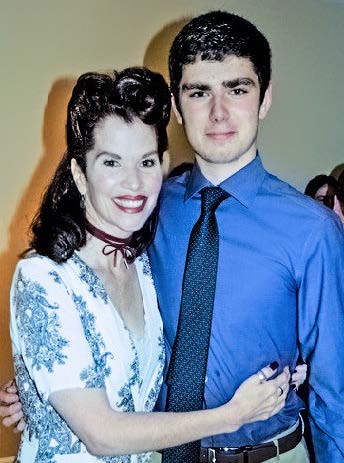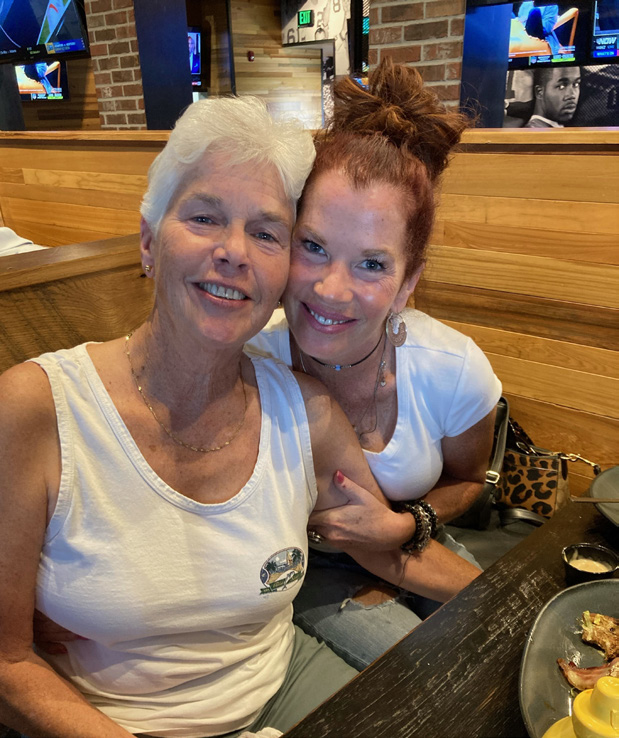Ask the Specialist: Finding Motivation after a TBI
By: Katelyn Bates OTD, CBIS

Feeling motivated to return to the things you love and want to do can be quite challenging after a brain injury. Fatigue, short attention span, and low motivation are very common symptoms. But it doesn’t have to stay that way! There are ways to help boost motivation and initiation.
Motivation is a need or desire that gives us energy for our behavior and actions. It is usually strongest for things we are excited about and enjoy doing. This may be a job, a hobby, a role, or a relationship. As an occupational therapist (OT), I call these factors “meaningful occupations”.
In OT, occupations refer to the everyday activities that people do to bring meaning and purpose to life. This can include things people need to, want to, and are expected to do. Centering our lives around occupations that are important to us has been shown to improve overall motivation and participation in our day-to-day lives. So how do you increase motivation, and identify these occupations?
Ways to find your meaningful occupations:
- The O*NET Interest Profiler can help you find out what your interests are and how they relate to the world of work.
- If you search online for “online interest checklist” you will find many free options. This may help you remember past interests you might like to try again. It can also give you ideas for new things to try.
- Make a list of activities that bring you joy and try to do these on a regular basis, at least a few times a week.
Strategies to Improve Motivation in Your Everyday Life:
- Simplify your daily tasks to improve success and decrease stress. This could include breaking the tasks into smaller tasks.
- Make activities more enjoyable by including things you love to do in your everyday routine.
- Utilize a planner or calendar to help manage your schedule and increase productivity.
- Establish routines, such as a morning or night routine, into your daily schedule to increase achievement throughout your day.
- Management of anxiety and fatigue through meditation, journaling, rest, and other calming methods.
One of my favorite quotes is, “Today is your opportunity to build the tomorrow you want.” Take time to discover what motivates you and let that guide you throughout your recovery by establishing a sense of meaning and purpose for your life.
Doble, S. (1988). Intrinsic Motivation and Clinical Practice: The Key to Understanding the Unmotivated Client. Canadian Journal of Occupational Therapy, 55(2), 75–81. https://doi.org/10.1177/000841748805500203
World Federation of Occupational Therapy . (2022, August 22). About Occupational Therapy. WFOT. Retrieved from https://wfot.org/about/about-occupational-therapy
Want to suggest a topic? Email us at braininjury@uams.edu.
Survivor Story: Jacque Miller
As Told to Kristen Alexander
“I meditate every day to work through my body and how I feel”
Jacque Miller

Jacque Miller has always been very driven. She started college in the 1990s to be a dental hygienist. During school at the University of Minnesota, she worked at a group home, where she fell in love with working with people who have disabilities. She said, “I found such beauty in a different part of life that so many people miss. I just wanted to show more of that to others.” At 23 years old, she decided to apply to an occupational therapy program.
Around this time, during a hospital stay for pneumonia, Jacque had a coughing fit and felt a blood vessel blow in her head. The force of the coughing had caused a subdural hematoma that would not be discovered until three days after she was discharged from the hospital. Once home, she lost sight in her right eye, which never returned. She began losing other functions, and had excessive vomiting, so she went back to the hospital.
After a CT scan, the doctor told Jacque’s mom, “she’s bleeding.” Her mom said she wasn’t, because she saw no blood. The doctor then clarified, “she’s bleeding in her brain.” They could not operate due to swelling, so she was there for two months. 17 hours after discharge, Jacque was readmitted for emergency brain surgery, had to stay in the hospital for another six weeks, and then went to rehabilitation.
Six months after her surgery, Jacque’s doctor told her all her deficits would be permanent and she would not recover any further. At that point, she walked with a walker or cane, could not read or write proficiently, and could not function independently.
Feeling humiliated, Jacque entered into a dark depression for the next six months. She felt angry at her situation, but she made herself keep going. She started seeing a neuropsychologist. She made herself go outside every day, even if it was just to the backyard or the front step — anything to get out of the house and not sit down in the dark.
She progressed to mowing the yard, which often looked “creative” because of the loss of sight in her right eye. She also attempted to paint her parents’ house and other familiar, but now daunting, tasks.
And then things started looking up. Her doctor was completely wrong about her recovery. At 25 years old, Jacque got married and started that occupational therapy (OT) program she had applied to. It had its own problems, and she had to call the Americans with Disabilities Act Network to get fair treatment. Even in an OT program, there was a lack of awareness of her abilities and a lack of accommodation for her disability.
Jacque had her son at 30, and her pregnancy put her into a coma. She did not let that stop her from having her daughter two years later.
Despite all the challenges along her path, Jacque felt the drive to work, so she went on to have a successful career for over 10 years, but it was a really long road. She worked as an OT, hand therapist, ergonomics specialist, case manager, and then a facility rehabilitation manager.

“But the seizures caught up. The hours caught up. I was young, but having children takes from your body more than you realize,” Jacque said. “Not just in the moment, but in general.” And having had a brain injury, that was even harder for her.
When Jacque first had kids, she didn’t work that much, but over the years her hours kept ramping up and the seizures kept getting worse. She said, “I remember the last time, when I worked as the facility rehab coordinator, waking up with the royal blue seizure pads around me, and the neurosurgeon saying, ‘Would you like to keep working or would you like to raise kids? That’s where we are at’. I chose my kids.”
That was in 2009. Jacque recalls it as a really hard time. She and her husband got divorced and she had to move in with her mom before getting a town house for herself and the kids. She went on Social Security Disability Insurance (SSDI), a process that she says really hurt her pride. She was depressed after that for a long time. She had a lot of doctor’s visits and pain management to sort out.
Once her kids were older, she was able to get a cashier job, which helped. Now her kids are grown and Jacque finds herself in the limbo of working the maximum allowed with her SSDI, but wanting a little more financial freedom to take care of her needs, and maybe even take a vacation. She also wants to do more for her professional self and find an outlet for her experience and perspective.
Jacque was a dedicated volunteer at the Brain Injury Association of Minnesota, and has become involved in the brain injury network since moving to Arkansas. She joined the Arkansas Brain Injury Council and is very active in the online support group. Other survivors look up to her and say she gives really good advice.
While she is still deciding her next steps, for right now she has found some things that work for her. “I meditate every day to work through my body and how I feel. It’s a lot of reflection to think about what worked, what didn’t work,” Jacque says. She has to be careful to not take on too much, and this process is helpful for her to discover what her body needs. “Naps are important, sleep is important. The more stress you put on the brain, that means you need more rest,” she says.
Jacque encourages others to listen to their body. She gets on the floor and stretches multiple times a day. “You have to stretch and move as much as you can. Static positioning, or staying still, is just the worst thing on the human form, especially for someone who has had a brain injury,” she says. “Any brain injury is going to cause spasticity in your body and any atrophied muscle will cause spasming. You have got to keep that moving.” She would love to be able to get a professional job so she can afford a physical trainer.

Jacque’s advice to other survivors:
- Initially, this is hard to believe, but it’s a new beginning. Its not the end of anything.
- There is so much beauty and wonder to be found when you are granted new perspective, regardless of your want for this “gift.” Brain injury gives you an opportunity to slow down and see things in a different way. That opportunity disperses light over yourself and those in your path that you will find glorious in the shades of the slower day that you have never seen previously. It is also a gift you give other people. You realize what is important and what is not important. You realize people are important, not things. It’s important how you treat people. It’s important how you act toward people.
- Especially right after, there is a horrible dark time. I went through it and my family went through it. It has been over 25 years and it is imperative to know that although things are not bleak, brain injury does not go away. There are still times that I go up and down and there are times I still get very down, when I feel like I’m not accomplishing what I “should” be doing. That’s when you have to calm yourself down and go, “but remember what I’ve been given.”
Want to share your story? Email us at braininjury@uams.edu.
Social Security Pointers: Disagree with Your Disability Decision? We Will Take Another Look.
By Tonya Cater, Social Security Public Affairs Specialist
Social Security continues to protect the integrity of our disability programs by ensuring we make the correct decision on each claim. However, if you disagree with the decision on your claim, you can ask for your case to be reviewed by filing an appeal.
How can I appeal Social Security’s decision on my claim?
Generally, there are four appeal levels. If you are not satisfied with the decision at one level, you may appeal to the next. The appeal levels are:
- Reconsideration: A reconsideration is a complete review of your claim by someone who did not take part in the first decision. We look at all the evidence submitted in the original determination, and any new evidence.
- Hearing: If you disagree with the decision at the reconsideration level, you may ask for a hearing. An administrative law judge, who had no part in the original decision or the reconsideration of your case, conducts the hearing.
- Appeals Council Review: If you disagree with the hearing decision, you can request a review by the Social Security’s Appeals Council. The Appeals Council looks at all requests for review. They will decide whether or not there is a reason to return your case to the judge for further review.
- Federal Court Review: If you disagree with the Appeals Council’s decision, you can file a lawsuit in a federal district court as the last level in the appeals process.
Find more information at www.ssa.gov/benefits/disability/appeal.html.
When should I file my appeal?
If we deny your claim, you have 60 days from the date of the notice to file an appeal. The easiest and quickest way is to file your appeal request online at www.ssa.gov/benefits/disability/appeal.html. You can also call your local Social Security office or 1-800-772-1213 to obtain the forms. You can find your local office at www.ssa.gov/locator.
Do I need a representative to file an appeal?
A representative or attorney is not required to file an appeal. Whether you choose to appoint an attorney or authorized representative is completely up to you. You may choose to have someone help you with your appeal or represent you. Your representative may be a lawyer or other qualified person familiar with you and the Social Security program. We will work with your representative just as we would work with you. They can act for you in most Social Security matters, and they will receive a copy of any decisions we make about your claim.
If you need us to review your case, please go online at www.ssa.gov/benefits/disability/appeal.html or call 1-800-772-1213. Please share this information with your family and friends.
Please be aware that past newsletter issues may contain outdated information. For the latest updates on resources and events, visit our website or contact us at braininjury@uams.edu with any questions.
